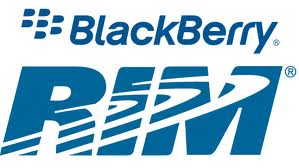
Everything seems to be going fine for Research In Motion as it gets ready to launch its highly anticipated BlackBerry 10 platform. Despite all the positive hype surrounding the struggling Canadian company’s make or break launch, the management of the firm is still looking at backup options. One such choice is the licensing of Blackberry 10 software to other smartphone manufacturers and the second is to sell its hardware division. This is not the first time that we have heard RIM is planning to sell its handsets division. However, this is the first time that someone from the company has openly spoken about it. RIM’s CEO, Thorsten Heins, has admitted that they are considering putting up the hardware division of the company for sale after the brand new Blackberry 10 OS hits markets. Heins has said this during an interview with a Dutch newspaper, Die Welt:
“This strategic review is still running, even if the pressure… has decreased. We do not want to limit our options… There are several options, including the sale of the hardware production… But there is no reason for us to decide in hectic. It is important first of all, BlackBerry 10 successfully putting them on the market. Then we shall see.”
At this point in time the selling of both software and hardware is very likely, as according to Heins, the future is quite unpredictable, so he cannot discard either option. On the other hand, several analysts and investors have been pleading for a partial sale or licensing deal for more than 12 months.
Ricardo Bilton of VentureBeat does not seem to agree and says, “The problem is that the move wouldn’t make much sense. As with Apple, one of RIM’s greatest strengths is its ability to create software that meshes perfectly with its hardware. That synergy would be completely lost if another company started making BlackBerry hardware.”
He adds that “Even the licensing deal is tough to swallow. Samsung, HTC, Nokia — there’s not a single smartphone maker for which BlackBerry 10 would be an attractive option. As a result, RIM’s efforts to license the operating system are unlikely to result in much interest.”